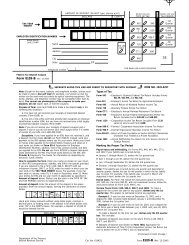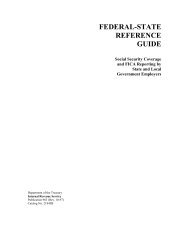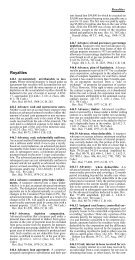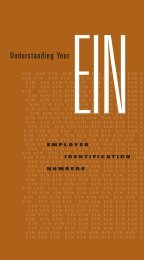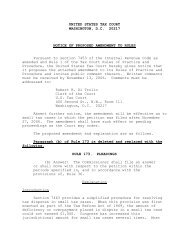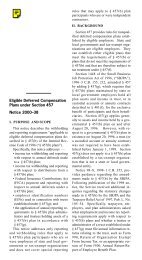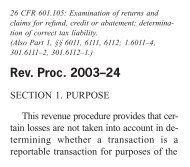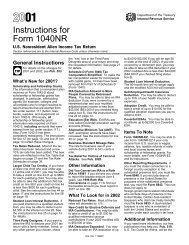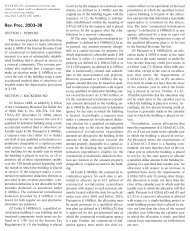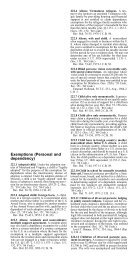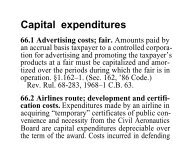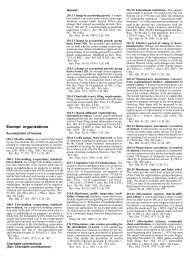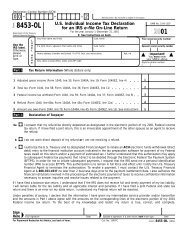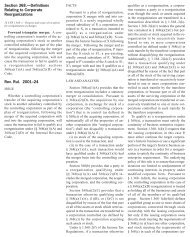Auto Dealerships - Audit Technique Guide - Uncle Fed's Tax*Board
Auto Dealerships - Audit Technique Guide - Uncle Fed's Tax*Board
Auto Dealerships - Audit Technique Guide - Uncle Fed's Tax*Board
Create successful ePaper yourself
Turn your PDF publications into a flip-book with our unique Google optimized e-Paper software.
. Dealership financing<br />
If the dealer is financing the customer, there must be a note which should be booked at<br />
face value. As payments are earned by the dealership, the note is reduced by the amount<br />
of the principal payment and interest income is recorded. Some dealerships report income<br />
when a payment is received instead of when it is earned in accordance with the note which<br />
may lead to a timing adjustment.<br />
The terms of the note must be reasonable. The note should call for full payback to occur<br />
evenly within a 1 to 5 year window. There may be issues if the principal balance remains<br />
unchanged for a long period of time or if the stated or (unstated) interest rate is not at<br />
least equal to the Applicable Federal Rate (AFR).<br />
c. Note Transfers<br />
It would be prudent for the examiner to scrutinize any trend of dispositions of notes, either<br />
gains or losses, as related or unreported transactions could be occurring.<br />
In the event that the note carried by the dealership is sold to a financial institution, the<br />
terms of sale become important. The note is sold either "without recourse" or "with<br />
recourse."<br />
A note is sold "without recourse" when the dealership is in financial duress or when the<br />
prospects of collecting are poor. If the auto buyer defaults the bank CAN NOT look to<br />
the dealer for payment. Notes sold "without recourse" are discounted to a significant<br />
degree.<br />
A note sold "with recourse" means that if the auto buyer defaults, the bank CAN force the<br />
dealership to pay.<br />
Receivables transferred "without recourse" should be recorded as a sale because (1)<br />
ownership risks and benefits are transferred and (2) the net cash flow effect of the transfer<br />
is known at the date of the transfer.<br />
When receivables are transferred "with recourse," the transferor agrees to make good any<br />
receivables that are not collectible. Even though ownership risks and benefits are not<br />
shifted completely, the transfer should be recorded as a sale if the net cash flow effect of<br />
the transfer can be reasonably estimated; otherwise the transfer of receivables is a<br />
borrowing and a liability should be recorded. FASB Statement of Financial Accounting<br />
Standards No. 77 sets forth conditions, all of which must be met, in order for the<br />
transferor to record a sale. These include: the transferor’s surrender of control of the<br />
economic benefits associated with the receivables; the transferor’s ability to make a<br />
reasonable estimate of its obligations to the transferee under the recourse provisions; and<br />
the transferee’s inability to require the transferor to repurchase the receivables, except in<br />
accordance with the recourse provisions.<br />
B-3



